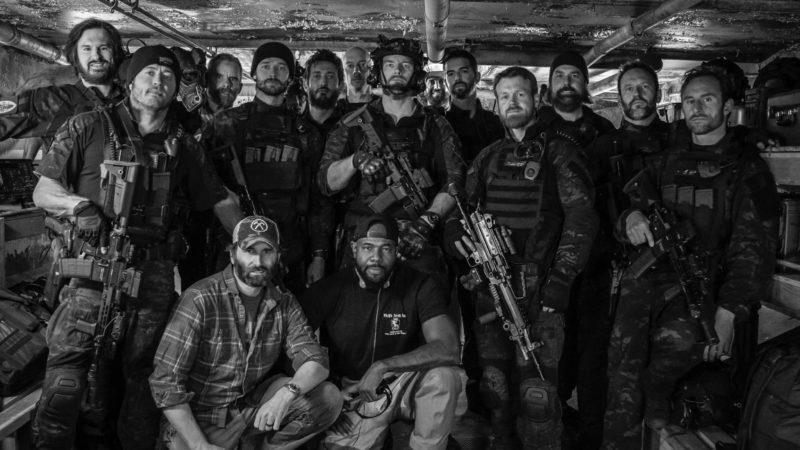Most of what I watch these days is for review. Which isn't to say that I'm forced to watch things I won't like. My editor is pretty receptive to my suggestions and I don't pitch ideas that I know I'll hate. Still, I often wish I had more time to catch up on classics or revisit favorites. But that's neither here nor there.
As I pondered what to write about this morning, I realized that, while I've sent off reviews for a few recent releases, I haven't talked about them here. Also, those are singular pieces. For the purposes of this blog I think it might be worthwhile to compare and contrast a few things.
Like every other red-blooded American with Amazon Prime, I sat down at watched The Terminal List as soon as it came out. Chris Pratt left Andy Dwyer and Star-Lord far behind when he took on the role of James Reese. Though I've never met a SEAL, I've spent a fair amount of time around former Marines and he nails their cadence and the way they carry themselves. These are men who are wounded and bear deep scars, and keep fighting anyway.
No better friend. No worse enemy.
Then I eagerly watched The Gray Man as soon as it landed on Netflix. Having read (well, listened to) the book last fall and being a lover of spy stories, I could hardly wait. The film adaptation is like the novel on speed, more of an amusement park ride than a movie. And I'm okay with that. It delivers on its promise of mayhem and thrills, with a tenacious protagonist who can outsmart and outfight everyone.
EVERYONE!
Once again, we have a guy who is wounded and presses on. Gosling's Serierra Six is arguably cooler than James Reese (as a spy should be), yet possesses many of the same character traits. They both reflect honor, perseverence, loyalty, and self-sacrifice. These are the guys who stand up against the impossible odds, the overwhelming evil that's in the world, and say, "Not on my watch."
They're masculine, but not like an 80's action movie hero.
Speaking of 80's action movie heroes, Sylvester Stallone made a superhero movie. I'll watch just about anything with that guy. And once again, we see a man who is scarred (literally) and emotionally wounded. In Samaritan he plays a character who has lost family and is dealing with the consequences of his actions. We're all seeking redemption, and he's no different.
A good character is often is. It's a sign of good character.
We've come a long way from the John Wayne hero who downplays his hurts. Wayne's characters still had them and worked toward redemption, just in different ways. As a society we've opened up quite a bit. Actually we've gone too far in real life, wearing our wounds as badges of honor and using them as excuses for not trying to improve ourselves or our communities. If that upsets you, you're only proving my point.
The hurts don't define us. How we overcome them (or don't) does.
Herein lies the value of the masculine archetype. He can inspire us if we allow it. Pushing back against everything that tries to keep us down makes us dangerous, and every man (if he's honest with himself) wants to be dangerous. The fight isn't against the government, or the world's most elite assassins, or a bad guy with a magic sledgehammer. It's against our own fears and regrets.
And we all have those.

























